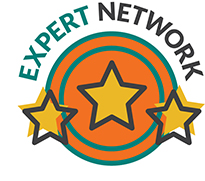3 Strategies To Lead Clinical Research With Moral Integrity
By Penelope Przekop, MSQA, RQAP-GCP
 “While data integrity is of utmost importance in clinical research, moral integrity is of greater importance.”
“While data integrity is of utmost importance in clinical research, moral integrity is of greater importance.”
—Ravi Madan, MD, senior clinician, National Cancer Institute1
Moral integrity is firm adherence to a code: incorruptibility. In clinical research, we have a few key codes. Perhaps the oldest is the Hippocratic oath. Hippocrates (460–370 BC) is universally recognized as the father of modern medicine, which is based on observation of clinical signs and rational conclusions and does not rely on religious or magical beliefs.
Those of us who launched into the pharma industry during the 1980s heard a clear message. By accepting employment with a Big Pharma company, we were committing to a code whose purpose was to ensure patient safety while working to improve and prolong lives. It sounds so pure and hopeful, doesn’t it? Like wedding vows, rainbows, butterflies, and all the sweet promises we make to children and as adolescents, before complication swoops in, challenging us in ways we never imagined. Sticking to all the oaths we make and codes we embrace in life takes commitment and resilience to course correct when we stumble.
Our industry is more complicated today than ever before. Our world has expanded on multiple levels, offering miraculous opportunities we never thought possible. So how can we remain loyal to our shared code while also supporting the innovative solutions and approaches the 21st century and beyond have to offer?
Here are three ways that seasoned clinical research professionals (and/or clinical leaders) might approach the challenge.
1. Seek To Infuse Static Quality Into The Dynamic
In his book, Lila: An Inquiry into Morals, American writer and philosopher Robert M. Persig suggests that “without dynamic quality, an organism cannot grow. Without static quality the organism cannot last. Both are needed.” Sometimes it’s easy to forget that the roots we can’t see are just as critical to health as the beautiful new blossoms popping up everywhere. Making and taking on opportunities to educate and inspire by providing the historical context and bigger picture view to those who are shifting the industry with new ideas and technologies is critical to the health of our industry.
- Challenge yourself to find new ways to infuse every discussion with the moral integrity that our industry was founded on.
- Foster innovation while ensuring that the spectacular advantage that history brings isn’t overlooked.
- Build and contribute to developing a company culture that respects industry roots and takes the time to apply the past to the present in ways that uphold integrity.
2. Foster New Educational Opportunities (Even If It Requires Slowing Down)
As seasoned clinical research professionals, it’s up to us to carry the banner of moral integrity in clinical research forward.
Remember when you didn’t know what you didn’t know? If you’re anything like me, that phase followed those early years when I knew that I didn’t know anything – when every day was filled with trying to figure out what everyone was talking about and how it applied to my role. Today, young professionals are jumping into biotech startups, big vendor companies, and emerging pharma companies ready to grab the reins and blast out of the gate with well-defined plans, a wealth of information, and road maps left and right. The days, or years, of knowing they didn’t know anything and scrambling for resources are long gone by the time they step into the office or join the Zoom call. Many are jumping straight into the “they don’t know what they don’t know” phase, bringing the information superhighway along with them. They are fast thinkers, Googlers, and texters.
All that’s fantastic! However, just like 30 years ago, no one earns a bachelor’s degree in how the pharma industry works and why. All the progress we’ve made in speeding up the drug development process and reducing costs has left little to no time to focus on educating those new to our industry about our industry.
- Recognize and take pride in being the grounded, steady voice in the room. Be the voice that knows and can communicate that our primary purpose is not to “startup” companies, create technological tools, etc. It has been and remains to improve and prolong the lives of patients.
- Take the time to include a hearty dose of pharma industry basics in your onboarding process, regardless of a new employee’s role. Educate everyone on why the industry is regulated, and why our oath remains to improve and ensure patient safety at all costs, not to shorten the drug development process at all costs.
- Explore avenues to bring courses and programs on how the pharma industry works to colleges and universities. Our industry is one of the few major sectors that don’t have widely available industry-specific courses and degree programs.
3. Champion Integrity-Based Decision-Making
The ability of both regulators and our industry to embrace risk-based decision-making continues to move us toward a more efficient, practical future. However, we must continuously remind ourselves that the intent is to assess the risk to patient safety and data integrity. More and more, I see standard operating procedures where risk is defined as risk to the company, risk to the drug development timeline, risk to the clinical program, and, for vendors, risk to the client relationship. While all those risks are certainly important from a business perspective, those are not the risks regulators had in mind when they encouraged us to go this route.
- When making risk-based decisions, consider whether moral integrity is at risk. If your decision-making focus is not on risk to patient safety and data integrity, the answer may be yes.
- When developing risk assessment processes, include risk to moral integrity in clinical research as a point of discussion and consideration.
- Foster discussion on the meaning of moral integrity in clinical research and provide examples to staff.
At any level, in any role, you can champion moral integrity in clinical research. There are all kinds of everyday heroes in our industry. It’s up to each of us to decide what we’re fighting for and to stand up for those who depend on us to deliver products that improve and prolong life. It’s time to remember that this is not a race for the sake of racing. Let’s aim to do well while doing good.
Reference
- CNBC article, “FDA committee votes against Eli Lilly cancer treatment over concerns trials conducted only in China,” Feb. 10, 2022.
About The Author:
 Penelope Przekop is a corporate quality management expert. Throughout her 30+ year career, she has worked with numerous Fortune 100 pharma companies, including Pfizer, Merck, Lilly, and Glaxo Smith Kline, and held leadership positions at Novartis, Covance, Wyeth, and Johnson & Johnson. She is the founder and CEO of PDC Pharma Strategy and serves as the Chief Compliance Officer for Engrail Therapeutics. She is the author of Six Sigma for Business Excellence (McGraw-Hill). Przekop earned a BS in biology from Louisiana State University and an MS in quality systems engineering from Kennesaw State University. She is a graduate of the Smith College Program for Women’s Leadership and the Rutgers University Senior Leadership Program for Professional Women. Her new book, 5-Star Career: Define and Build Yours Using the Science of Quality Management launches in November 2021 from Productivity Press.
Penelope Przekop is a corporate quality management expert. Throughout her 30+ year career, she has worked with numerous Fortune 100 pharma companies, including Pfizer, Merck, Lilly, and Glaxo Smith Kline, and held leadership positions at Novartis, Covance, Wyeth, and Johnson & Johnson. She is the founder and CEO of PDC Pharma Strategy and serves as the Chief Compliance Officer for Engrail Therapeutics. She is the author of Six Sigma for Business Excellence (McGraw-Hill). Przekop earned a BS in biology from Louisiana State University and an MS in quality systems engineering from Kennesaw State University. She is a graduate of the Smith College Program for Women’s Leadership and the Rutgers University Senior Leadership Program for Professional Women. Her new book, 5-Star Career: Define and Build Yours Using the Science of Quality Management launches in November 2021 from Productivity Press.
